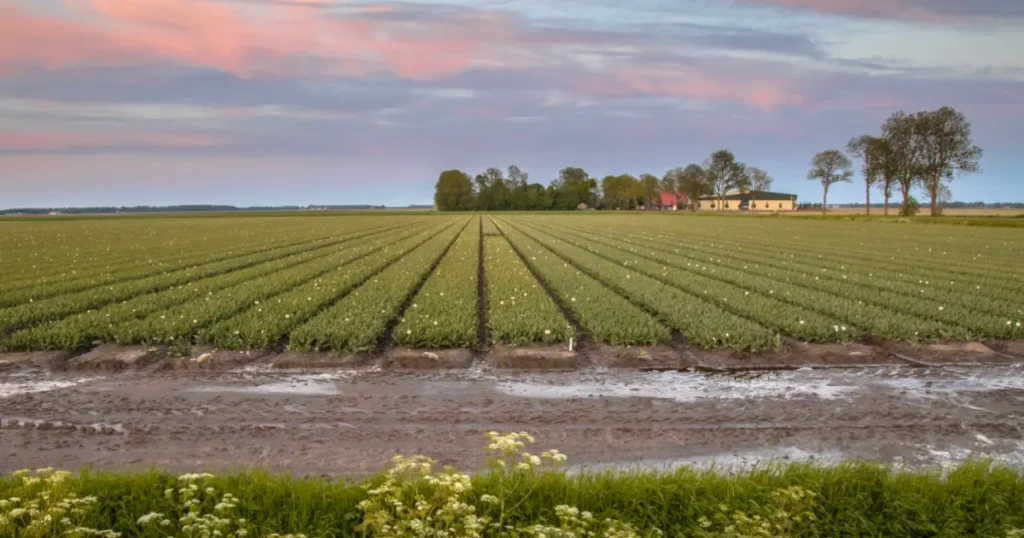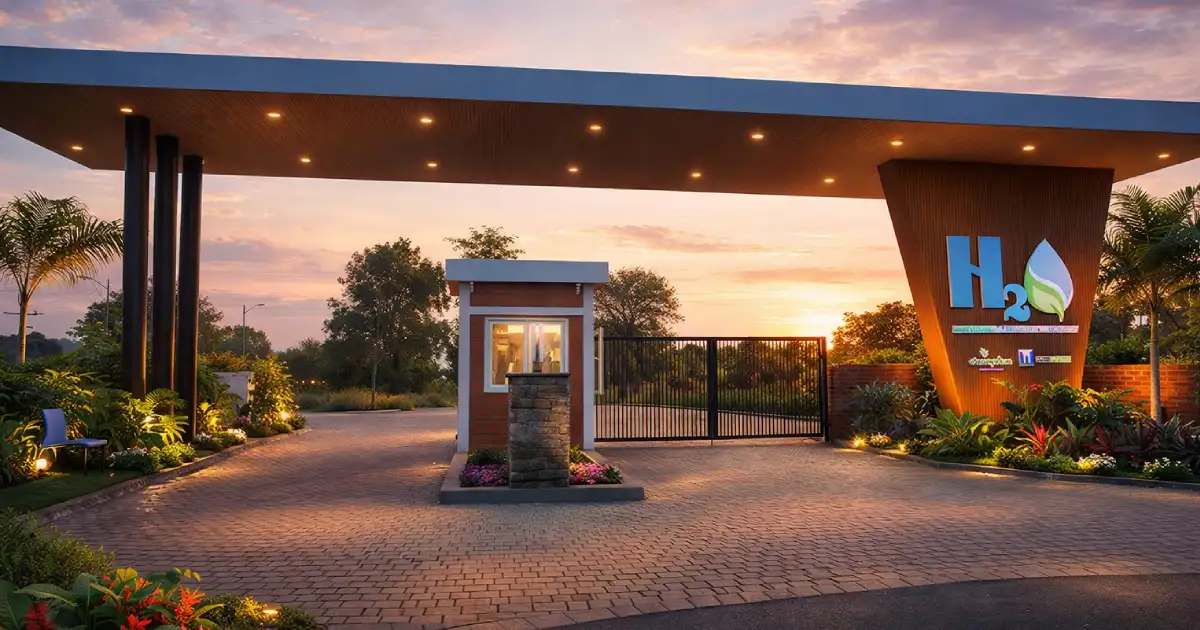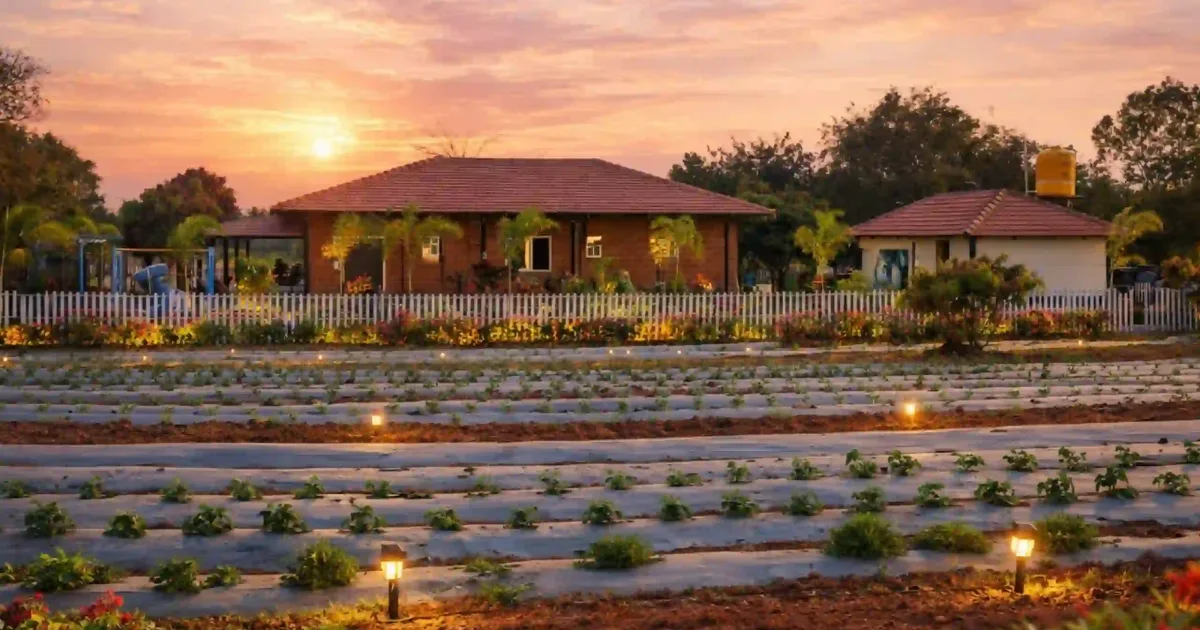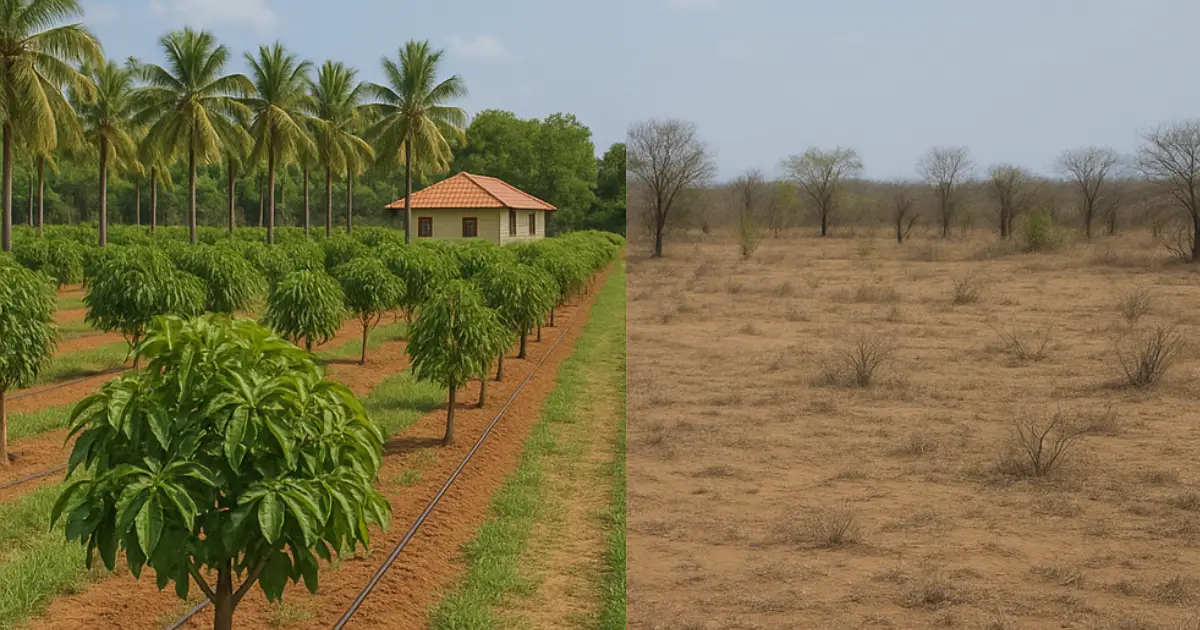Every weekend, thousands of people leave Bangalore, Hyderabad, and Mumbai in search of peace. Farmland seems like the perfect escape—natural, quiet, and wholesome.
But buying agricultural land in India isn’t like buying a flat. It’s full of fine print, outdated records, and legal grey zones. First-time buyers often rush in and pay for it later. The good news? Managed farmland solves most of these issues before you ever set foot on your future plot.
Common Mistakes Farmland Buyers Make India
Let’s walk through the most common traps that turn dreamers into regretful landowners.
1. Not Understanding Land Use Classification
In India, not all land is usable for agriculture, and not all agricultural land is legally convertible for building. This is one of the top mistakes first-time farmland buyers make in India. They buy land thinking they’ll build a cottage, only to learn it’s in a “green zone” or forest buffer area where construction is prohibited.
Proof: A 2022 Karnataka Revenue Department audit found that over 25% of individual farmland purchases were for land classified as non-cultivable or ecologically protected.
Solution: Always demand the latest RTC (Record of Rights, Tenancy, and Crops) and conversion documents. Or better—go for managed farmland projects where legal compliance is pre-vetted.
2. Ignoring Title and Ownership Disputes
Land records in India are often handwritten, outdated, or disputed. Even a slight mismatch in boundary measurements can lead to litigation that lasts for years.
Real-world example: A buyer in Denkanikottai invested in a 1.5-acre farm only to discover later that a sibling of the original seller had filed a claim of inheritance. It’s still stuck in court.
Lesson: This is one of the most common mistakes farmland buyers make in India—assuming clean titles without deep due diligence.
3. Overlooking Zoning Restrictions and Green Belts
If the land falls within 100 meters of a water body, forest land, or state/national highway, your dream project might be illegal before it begins.
Also, many buyers ignore village panchayat approvals or fail to verify land within eco-sensitive zones. That’s a direct legal violation.
4. Underestimating Maintenance and Operational Costs
Weekend farming is not just about planting and relaxing. Land clearing, soil health, fencing, water sourcing, labor—these things add up. A ₹40 lakh land purchase can easily turn into an ₹8–10 lakh annual upkeep liability if not managed efficiently.
5. Buying Land Too Far from City Access
The idea of remote, untouched land sounds attractive… until you’re stuck in traffic for 4 hours just to reach it. Many first-time buyers ignore the travel fatigue and access to basic infrastructure like roads, hospitals, or even water tankers.
How to Avoid Legal Issues When Buying Farmland
This is the part where most buyers wish they’d done their homework—or had someone to do it for them.
Here’s what you absolutely must do to avoid legal issues when buying farmland:
-
Get the RTC, Encumbrance Certificate (EC), and Mutation Extract verified
-
Hire a land surveyor to confirm physical boundaries
-
Check for any pending land acquisition notices by government
-
Ensure the seller is a legal owner with registered rights
-
Avoid land with pending tenancy or cultivation rights disputes
-
Don’t trust “patta” documents without cross-checking
Sounds like a lot? That’s because it is. Which is why…
Why Managed Farmland is the Ideal Solution
Legal Assurance
Managed farmland projects come with pre-vetted legal documents, clean titles, and often, DTCP or panchayat approvals. This eliminates 90% of the legal friction upfront.
Proof: SVR Farms near Bangalore conducts 42-point legal due diligence before offering any farmland plot to customers.
Hassle-Free Operations
From soil prep to drip irrigation, from seasonal plantations to harvest—everything is handled by an expert team. All you do is choose your plot and visit when you want.
Better Returns, Better Use
Managed farmland isn’t just passive. Many projects offer profit-sharing from crops like mango, teak, papaya, or herbs. Your land pays you back.
Stat: Agroforestry-based managed farmlands have shown 8–12% annual returns over 5–7 years (Source: NABARD Agro Investment Report 2023).
Perfect for Weekend Escapes
You get all the benefits—privacy, nature, clean air, a green lifestyle—without needing to become a full-time farmer. Some even come with farmstay cottages.
Real Buyer Case Study: How Rajeev Avoided a ₹12 Lakh Mistake
Rajeev, an IT consultant from Bangalore, almost bought a 2-acre plot in Anekal. Price was good, and the broker said “all clear”.
He cross-verified with a lawyer—turns out the land had pending litigation and was marked for road expansion. If he had paid, it would’ve taken years to recover.
Instead, he booked a 0.5-acre managed plot at a certified project in Thalli with a farmhouse, borewell, and mango orchard included. Zero hassle. He now visits every 2 weeks with his kids.
FAQs: Farmland Buying Mistakes and Legal Issues
Q1: What are the top mistakes first-time farmland buyers make in India?
-
Not checking land classification
-
Ignoring title checks
-
Assuming they can build anywhere
-
Underestimating costs
-
Trusting brokers blindly
Q2: How to avoid legal issues when buying farmland?
-
Verify ownership via EC and RTC
-
Avoid green belt land
-
Use a real estate lawyer
-
Cross-check conversion documents
Q3: Is managed farmland legal and safe?
Yes. If the project offers proper documentation, DTCP/panchayat approvals, and registered sale deeds, it’s completely legal. Always ask to see all records.
Q4: Can I build a farmhouse on any farmland?
Not always. Only on converted land or if zoning laws allow it. This is where most common mistakes farmland buyers make in India happen.
Q5: Why is managed farmland better for weekend farming?
Because it removes the legal, operational, and financial friction. You focus on enjoying the farm, while experts manage the rest.
Final Thoughts
Buying farmland in India can be rewarding—or a regret. It depends on how prepared you are. The most common mistakes farmland buyers make in India come down to poor research and legal missteps.
Weekend farming isn’t just a dream anymore. With the rise of managed farmland, it’s now a real, safe, and smart way to reconnect with nature and build long-term wealth.
Ready to explore legally vetted managed farmland near Bangalore?
→ Contact us for a free consultation.
→ Book a farm visit this weekend – Click Here
→ Follow SVR Farms for real stories and updates: [Click Here]











